A snapshot of women farmers in midst of male out-migration and challenges accessing irrigation water in Southern Tajikistan
Rural Women - Stepping into new roles
Women in Tajikistan have always been actively engaged in agriculture, however, they have increasingly taken on new tasks in the sector, including becoming farm managers, in response to few off-farm employment opportunities and high rates of male labour migration.

But their transition to these new roles has not been without difficulty. Women from Sayfuddinov said, “Now we face many challenges in life, because before men were here and they would help us, we would just do hand hoeing and come home. Now, we leave our kids all alone at home and go to work all day.”
In September 2015, qualitative field research was conducted in southern Tajikistan’s Khatlon province to understand opportunities and constraints women were facing as they navigated their agricultural responsibilities, particularly in relation to irrigation water management.
Water Access – Why does it matter?
As we drove through Khatlon, cracked cement irrigation channels and canals filled with debris that line the fields quickly became a defining feature of the arid landscape. Challenges accessing irrigation water were, therefore, an unsurprising but similarly defining feature of women’s ability to cultivate their land.
A lack of water and lost harvests can translate into negative profits, meaning less money to pay off credit taken on agricultural inputs and less money to invest in the next growing season. Water scarcity also prompted some women to switch from growing water dependent crops, such as tomatoes, peppers or squash to more resistant crops such jurbi which is used to make brooms, with potential impacts on household nutrition.
Water Governance structure – up against odds?
In southern Tajikistan, as in many parts of the world, different institutions such as village water masters, water user associations and district water authorities exist to support the efficient delivery of water to farmers. However, frustration and dissatisfaction with the services provided by these institutions were expressed among the women during the focus group discussions. It became apparent that many feel cut off from both quality physical infrastructure and service provision.
A women from Obsohron region shared“we brought this issue [that the pipes are broken] to the attention of the service provider but they said they don’t have money to repair them…They say ‘Pray to God about it.’ They always make promises, but never follow-through.”
Water management in Tajikistan has historically been the domain of men and as women compensate for male-out migration, systems may need to adapt to the needs of their new water users. Female farmers noted key difficulties in working effectively with their irrigation service provider, including:
- a lack of knowledge about approaching the right authorities
- a lack of trust in the service provider due to failures to resolve past challenges
- time constraints to attend meetings and seek assistance due to increasing household and agricultural responsibilities
- a perception that women are treated differently because of their gender
“When I go [to the offices of my irrigation service provider], they ask why I am bothering myself, I should tell my husband to deal with this. But my husband doesn’t have time for all of this. I may be a woman, but I can take care of all of the [farm activities] if there were just water. I am a strong mother and a pensioner… I am not a weak woman, I know my rights and I am the head of the dehkon farm. I am not afraid of stating my problems and they should listen to me,” said a woman in Obshoron.
Another woman from Iftikhor said, “Men can go out, bring the equipment and clean [the canals]. Men are men, they are able to arrange such things, but who can women talk with?...Women are too busy, we have work coming from all directions, from the household and the dehkon farm…I do want [to clean the canal near our plot] but I don't know where to go and who to speak with in order to solve this issue.”
As women step into new roles as farm managers and become more engaged in water management in absence of male members, efforts should be made to ensure their ability to form strong connections to both the physical and institutional systems of irrigation water delivery. Women’s ability to successfully access water and cultivate crops is essential to ensuring household income and food security for their family.
How can irrigation service providers support and engage with female farmers? With an increasing burden of work and time constraints, will women be participative and responsive to water management policy initiatives? With an economic crisis in Russia, the primary destination for Tajik labor migrants, what will be the implications and role reversal when these migrants return back to rural areas?
This work was undertaken as part of a baseline study by IWMI for the USAID funded project “Impact of Water Users Association on Water and Land Productivity, Equity and Food Security in Tajikistan.”




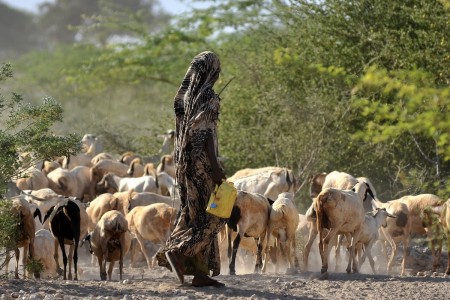

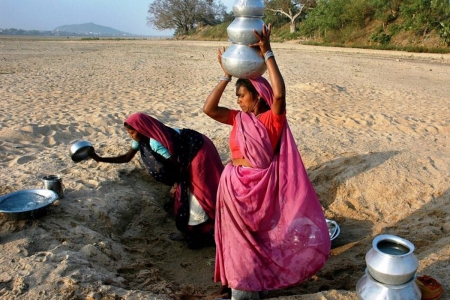

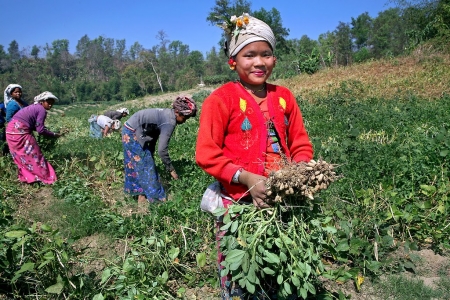



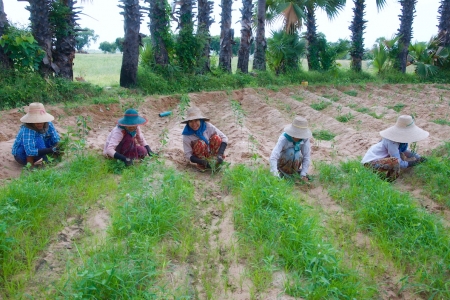
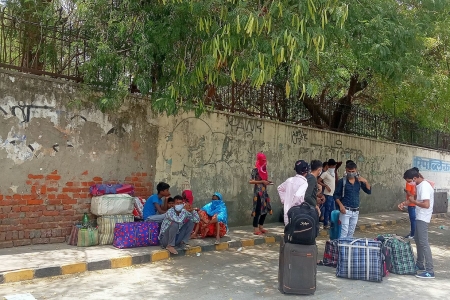




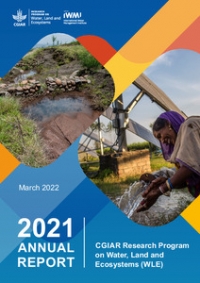
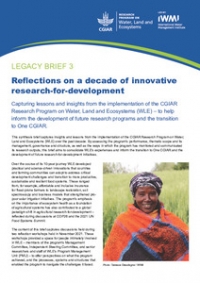
Comments
With great interests I read through the snapshot provided by you on gender and irrigation in Tajikistan. I encounter many similarities with my own research conducted in the Pamir region, which focussed on gender and irrigation. I indeed observed that rural women were increasingly engaging in irrigation activities, in particular de facto female headed households. Yet, they are excluded in water management domains (at all levels!). At the same time, the sustainability and survival of these irrigation systems and livelihoods, will strongly depend on women's engagement in water management, in particular in light of the growing male out migration. Yet, I find it also interesting and hopeful to read that various women are starting to take up roles of Dekhon farm managers. This might be an opening - and forms an example of how gender roles and practices are altered as during the Soviet period such positions were foremost fulfilled by men. At the same time, I also encountered women who already had a very heavy work burden and were actually happy that they didn't not have to take part in irrigation meetings or canal maintenance activities... At the same time, other women fell that they could not voice their water concerns. As many irrigation systems are managed by the communities, with little to no state intervention (at least in the Pamirs) I think that it is important to extend our insights on these questions and develop participatory methods with communities to seek ways on how to engage women and together explore different ways on how they can voice their concerns and struggles as well as possibilities to engage in water management activities.
In case you are interested to read more about this topic please find here the link to the article: https://www.bioone.org/doi/pdf/10.1659/MRD-JOURNAL-D-13-00087.1